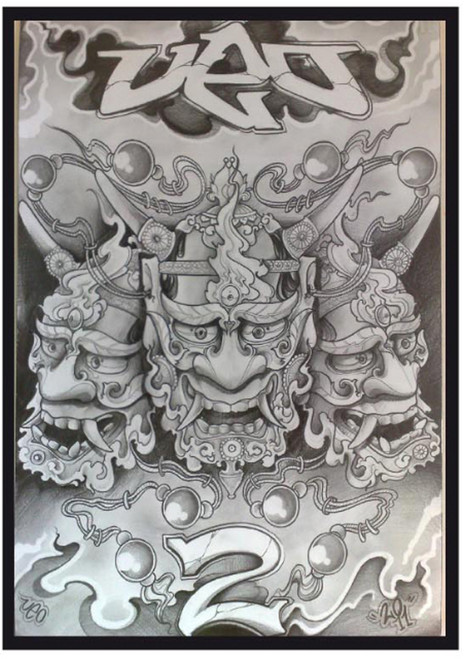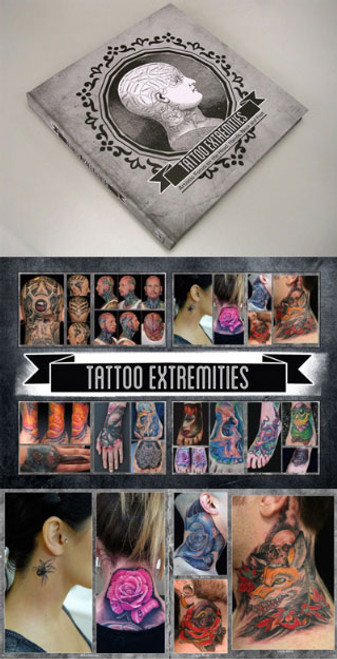This book is an unprecedented collection of interviews from the most prestigious and influential masters of the craft. Included are hundreds of photos from top photo journalists, as well as archival material from the masters albums. The work shown in the book spans 4 decades. The full length interviews give great insight into some of the more subterranean, underworld aspects of Japanese tattooing, as well as the technical aspects of their craft.
Japanese traditional tattoos are typified by a single large narrative or symbolic subject taken from Japanese iconography, which is often embellished with other complimentary elements. The motifs used range from protagonists from folkloric tales, religious deities, to animals -- both mythical and real -- which are then complimented with flowers and maple leaves, and smaller iconography, taking into account the seasonal compatibility of the main subject.
While there are many tattoo cultures all over the world, Japanese tattoos are certainly some of the most powerful, aesthetic and holistically balanced, and are nothing short of breathtaking when seen in the flesh. This book will look at the tattooing tradition that is a continuation of the Edo period tattoo culture, however, there are many regional cultures and communities that have their own culture of tattooing that have existed autonomously from the Edo traditional tattoos. Included are interviews with a woodblock artisan, and the daughter of a yakuza boss who has full body tattoos to show the perspective of a client. This book will inform people wanting to know the relation between the underworld and tattoos and how this relationship is shifting.
Japanese tattoos are some of the most popular tattoo styles internationally and this book will give the reader a glimpse into a hidden and inaccessible world, described with candor from the mouths of the masters themselves. This book will be an indispensable addition to any tattoo artists or aficionados collection. This book is the result of 8 years worth of getting acquainted with, and interviewing these masters from various regions of Japan, from the South Kyushu island, to the Kansai region, to Tochigi, to Tokyo.







